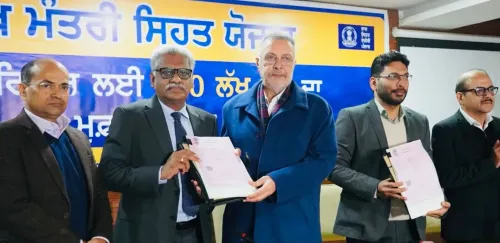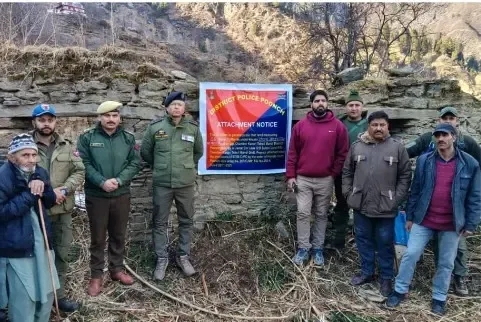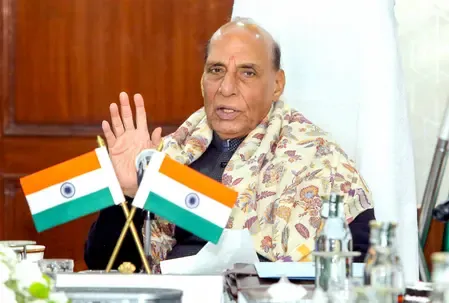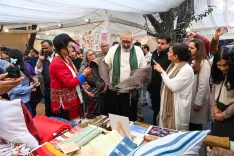Should the RBI Reverse its Restrictions on Gold Loans?

Synopsis
Key Takeaways
- RBI's new restrictions on gold loans include a reduced LTV ratio and increased paperwork.
- Impact on low-income families and small businesses is significant.
- Calls for policy review emphasize the need for compassionate financial regulations.
- Gold loans are a crucial source of liquidity for many.
- Critics argue that these policies ignore the realities faced by ordinary citizens.
Chennai, May 22 (NationPress) The Finance Minister of Tamil Nadu, Thangam Thennarasu, made a compelling appeal on Thursday for the Reserve Bank of India (RBI) to revoke its newly implemented restrictions on gold loans, stating that these measures are harmful to the poor and middle-class citizens.
In a strongly worded message posted on X, Thennarasu criticized the RBI’s recent decision to lower the loan-to-value (LTV) ratio on gold loans to 75 percent, along with the introduction of stringent documentation requirements.
He pointed out that these regulations impose unnecessary challenges for individuals who depend on gold loans during times of crisis.
“At a moment when the public is already facing challenges due to the previous rule preventing the re-pledging of gold until full repayment, the addition of nine more stringent guidelines is profoundly insensitive,” stated the minister.
He labeled the RBI’s action as “systemic injustice” towards vulnerable segments of society, particularly economically disadvantaged families that often turn to gold loans as a last resort.
“The RBI needs to embrace policies that are compassionate and centered on people,” he emphasized.
Echoing this sentiment, G.K. Vasan, president of the Tamil Maanila Congress (Moopanar), also urged the RBI to rethink its stance.
In a statement, Vasan underscored the extensive ramifications of the restrictions, asserting that they will affect not only low-income families but also micro and small businesses, as well as farmers.
“These groups frequently rely on gold loans to address urgent financial needs. By tightening access, the RBI is constricting a vital credit source for the impoverished and those in informal sectors,” Vasan remarked.
He called on the central bank to demonstrate flexibility and empathy by easing the regulations surrounding gold loans.
Previously, the RBI had introduced a set of nine revised guidelines for the disbursement and repayment of gold loans to enhance transparency and fiscal discipline.
However, critics contend that this initiative neglects the realities experienced by ordinary citizens, particularly in rural and semi-urban regions where gold loans are a vital source of liquidity.
Both Thennarasu and Vasan have urged for an immediate review of policies to ensure that financial regulations do not compromise the welfare of the populace.










